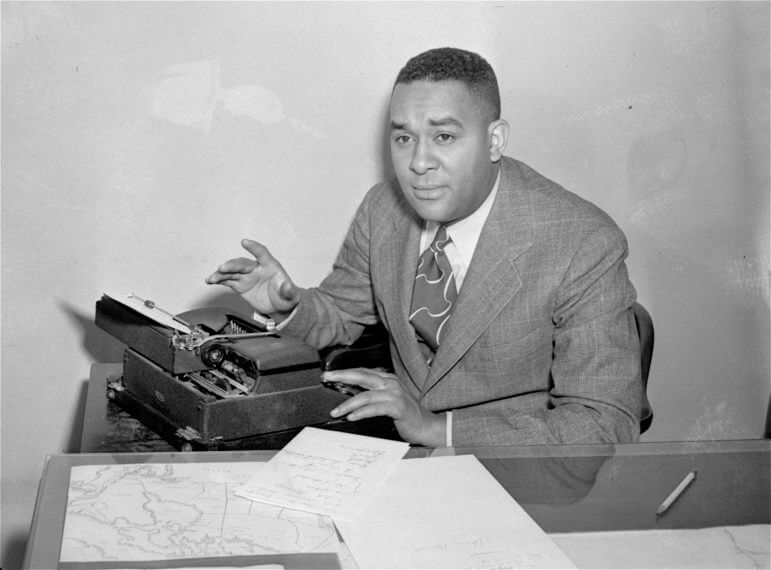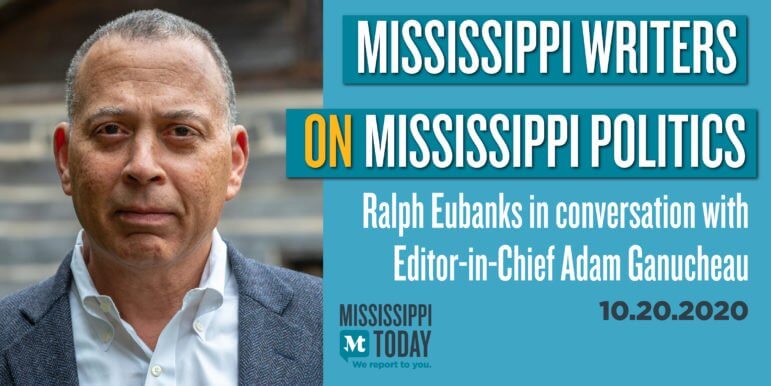

We are the stories we tell
An essay by W. Ralph Eubanks | Oct. 20, 2020
If there is one thing my students in Southern Studies grow weary of hearing me say, it is this: Memory is not a passive repository of facts, but an active process of creating meaning about the past. Here in Mississippi, the interplay between the past and the present is always with us should we choose to engage with the varieties of ways in which we envision our history. This state has two magnificent museums to help us do just that, so we’re lucky. Still, active engagement with the past is what can help Mississippi move forward.
American cultural memory exists within segregated realms and goes hand in hand with the construction of our individual identities. Black and white Americans frame their personal histories differently, rather than seeing a common historical narrative rooted in our origin in Mississippi and the American South. So, when I am asked why I teach and write about Southern identity and memory, I say it is to foster a better understanding of this shared past and to help us all develop a more nuanced idea of the recent past. As a writer, I am constantly in search of memory that is not seen or has been silenced.
But Mississippi’s past is a painful place to visit. Since my time back in the Magnolia State, I’ve come to realize that the Holocaust feels more real to most of my students than the Jim Crow era. They can quickly tell me the historical significance of Auschwitz, yet know little of Mississippi’s legacy of lynching or even the murder of Emmett Till. If we truly want Mississippi to advance, we have to embrace all of its stories, even the ones that make us uncomfortable. As a professor I teach those stories, often beginning with Mississippi’s own Richard Wright.
Reading Richard Wright’s experience of hunger, poverty, and racism in Black Boy often feels otherworldly. This is a book that stares into the deep abyss of life under segregation, one that explores the ethics of living under Jim Crow, probing the question of “how do you remain an ethical person in an unethical society?” Dante’s Inferno takes the reader through nine circles of Hell and so does Richard Wright, with Mississippi standing in for the flaming fires of Gehenna. Yet to my students, because the book’s narrative shape mimics a novel, they can’t imagine that a world like the one Wright describes ever existed.
The rage and insecurity of the narrator in Eudora Welty’s short story “Where is the Voice Coming From?” shocked my students, leading one to remark that they could not conceive of anyone harboring so much hatred. Welty wrote the story the same night that she learned of the murder of Medgar Evers. When she heard the news, it occurred to her that she knew what was going on in the mind of the man who pulled the trigger. Welty’s story is so effective at putting readers inside the mind and heart of a murderer that it evoked both psychic and emotional discomfort during our class discussion.
Some might think that it is a good thing that the torrid reality of the Southern past under Jim Crow elicits disbelief to those who never lived under the system. But it concerns me that until some of these students read Richard Wright’s Black Boy, Lillian Smith’s Killers of the Dream, and Eudora Welty’s “Where is the Voice Coming From?” they are learning for the first time how racism manifests itself in tangible acts of bigotry. They also have little awareness of how racism haunts us and sometimes is invisible in our society, whether it is a building named for James K. Vardaman or a Confederate statue proclaimed as a symbol of heritage. And while they may be unaware of the invisible nature of racism, they have all largely embraced the simple triumphant narrative of the Civil Rights movement rather than the more complex layered narrative that is historical reality. We all do a disservice to the past if we don’t think about the risks people took for us to co-exist in integrated spaces. It is my job to remind them that before there was even a glimmer of a dream, we all lived in a nightmare.
But it is also my job to remind them of the ways in which Americans have not achieved elements of that dream. Jesmyn Ward’s Men We Reaped stands as a towering reminder of how much farther we have to come. Like Black Boy, Men We Reaped is not a book to be engaged with casually. When Ward relates the unconnected deaths of five young men in four years, you quickly realize the story she tells demands attention. “By all official records,” Ward writes, “here at the confluence of history, of racism, of poverty, and economic power, this is what our lives are worth: nothing.”
In Mississippi we can no longer write off Black lives as being worth nothing. We cannot continue to underfund our public schools, which are 47.6 percent black. And we must stop avoiding our history, shrouding it in mythology, or sanitizing it. Last year, the writer Randall Kenan spoke at the University of Mississippi about his work as a writer and the role of the writer in society. Kenan said “for a community to change they have to understand the devastation they are wreaking on certain people.” We in Mississippi often don’t realize the ways we are destroying ourselves through benign neglect of education, health care, and our social safety net. One way we can begin to understand each other is through the stories we tell about this state. And my hope is that by understanding each other, we might also develop sounder and humane public policy.
Stories shape the way we look at and perceive the world and help us to gain a shared perspective. That is especially true in Mississippi. Yet here and throughout the South we also use narratives to obscure the truth. Now that we have changed our state flag, Mississippi needs to begin a dialogue on how we memorialize the past, whether it is Confederate monuments or large bodies of water named for rabid segregationists.
When students finish my course on Southern identity and memory, they begin to think of Mississippi and of their own personal identities in a new way. “We all construct our identities from a toolkit of options,” I tell them, echoing philosopher Kwame Anthony Appiah. I’m always hopeful when the class ends, since I see how they are beginning to construct their own toolkit of Southern identity. But I also realize these are only a dozen or so students in a large university. And in this state—and across the country—only about a third of the population ever gets a college education. My hope for Mississippi is that the active engagement of our young people with our history, even as painful as it is, will begin earlier and become part of our state history curriculum. For it is through our stories and the memories we may neglect to see or hear that we can begin to find a clearer path in which to forge our future.
Editor’s Note: We are sharing our platform with Mississippians to write essays about race. This essay is the second in the series. Read the first essay by Kiese Laymon. Click here to read our extended editor’s note about this decision.
Want to hear more from Ralph? Join our exclusive event:

The post We are the stories we tell appeared first on Mississippi Today.
- Work requirement will likely delay or invalidate Medicaid expansion in Mississippi - April 30, 2024
- Why many House Democrats say they’ll vote against a bill that is ‘Medicaid expansion in name only’ - April 30, 2024
- Veiled accusations fly in hearing over disappearance and death of Jackson man - April 30, 2024